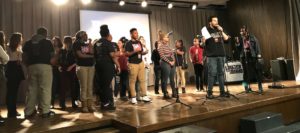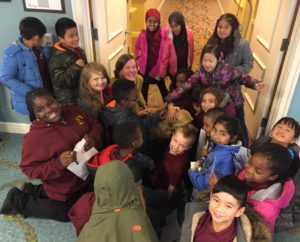Green Book, Blue Book, and wonderful Wanda
February 25, 2019 • 8 Comments • Posted in memoir writing, Mike Knezovich, Mondays with Mike, teaching memoir, writing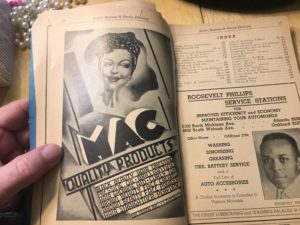
Wanda shared her copies of Scott’s Blue Book with me. Priceless.
I posted about the movie “Green Book” awhile back. I liked the movie then, and I like it now.
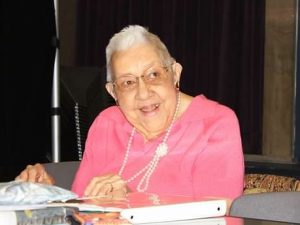
The wonderful Wanda Bridgeforth.
Whatever you think about the movie, I think there is one inarguably good thing about it: A ton of people who knew nothing about the Green Book before the movie now do know about it. I’m sorry they didn’t know before, but am happy they do now—thanks to the movie. It brought alive how awful that was and how recently that book was necessary.
I didn’t know about the Green Book until Beth related stories told by some writers in the memoir classes she teaches. These people lived through the Green Book era, and used the Green Book. One of them is the wonderful Wanda Bridgeforth, now 98 years old. Beth has written often about Wanda, and Wanda has been a guest blogger several times. (Here’s one about her time at DuSable High School.)
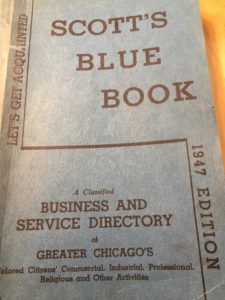
The cover of the 1947 Scott’s Blue Book.
We are so lucky to know Wanda. I know of no one like her. Wanda somehow does not deny the awfulness of racism, speaks openly and in detail about it, yet goes through life with joy, humor, and grace.
We saw her last week. Wanda missed Beth’s Wednesday memoir class at the Chicago Cultural Center because she’d hot-rodded with her walker and taken a fall and sprained her ankle and banged up her hand. Beth and I had tickets to a play at the Court Theater in Hyde Park — Wanda’s apartment was on the route there, so Beth collected printed copies of the essays that had been read outloud at the class Wanda had missed that day and we delivered them, along with a get-well card from the whole class.
Wanda greeted us in the hallway outside her apartment. She’d seen us come in the lobby via the closed circuit TV channel, the little sneak. She was already healed enough to motor on with her walker.
We sat at her dining room table and chatted, and then Wanda said, “Michael, look at these.” She pushed two blue plastic bags toward me. Inside each was a “Scott’s Blue Book.” Wanda had told Beth about the Blue Book after Beth mentioned that she’d seen “Green Book.”
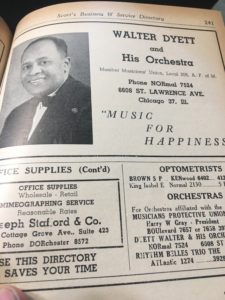
Need an orchestra? Scott’s has you covered. By the way, Walter Dyett had a distinguished career as a music educator at DuSable High School.
The Blue Book was a kind of Yellow Pages—except it listed only black-owned and operated businesses, centered in the old segregated South Side of Chicago. Residents there couldn’t venture downtown or other places, so they built a black metropolis within the city. Wanda and others have taught me and Beth (and anybody smart enough to listen) a whole lot about the rich, vibrant, textured, literate, musical life in the black island that was Bronzeville and beyond. To hear her stories is to lose preconceptions and assumptions about what South Side Chicago meant, or means today. And to mourn the loss of the community and social fabric that Wanda grew up in.
Anyway, those Blue Books. What can I say? Leafing through them was a wonder, a passage to a world where Wanda lived, and that, thanks to Wanda, I am able to imagine. Some businesses had only a single line entry, others purchased full pages. Many included a photograph and biography of the business owner or the family of proprietors. Typically, the photographs were portraits of business owners in dressy attire. The bios were written formally and impeccably.
As I leafed through one Blue Book slack-jawed, Wanda paged through the other, pausing to tell us about one or another business she’d patronized, or a business owner she’d known.
Thanks to Wanda, that vibrant world came to life. Beth and I and everybody who knows her will always be better for it.
